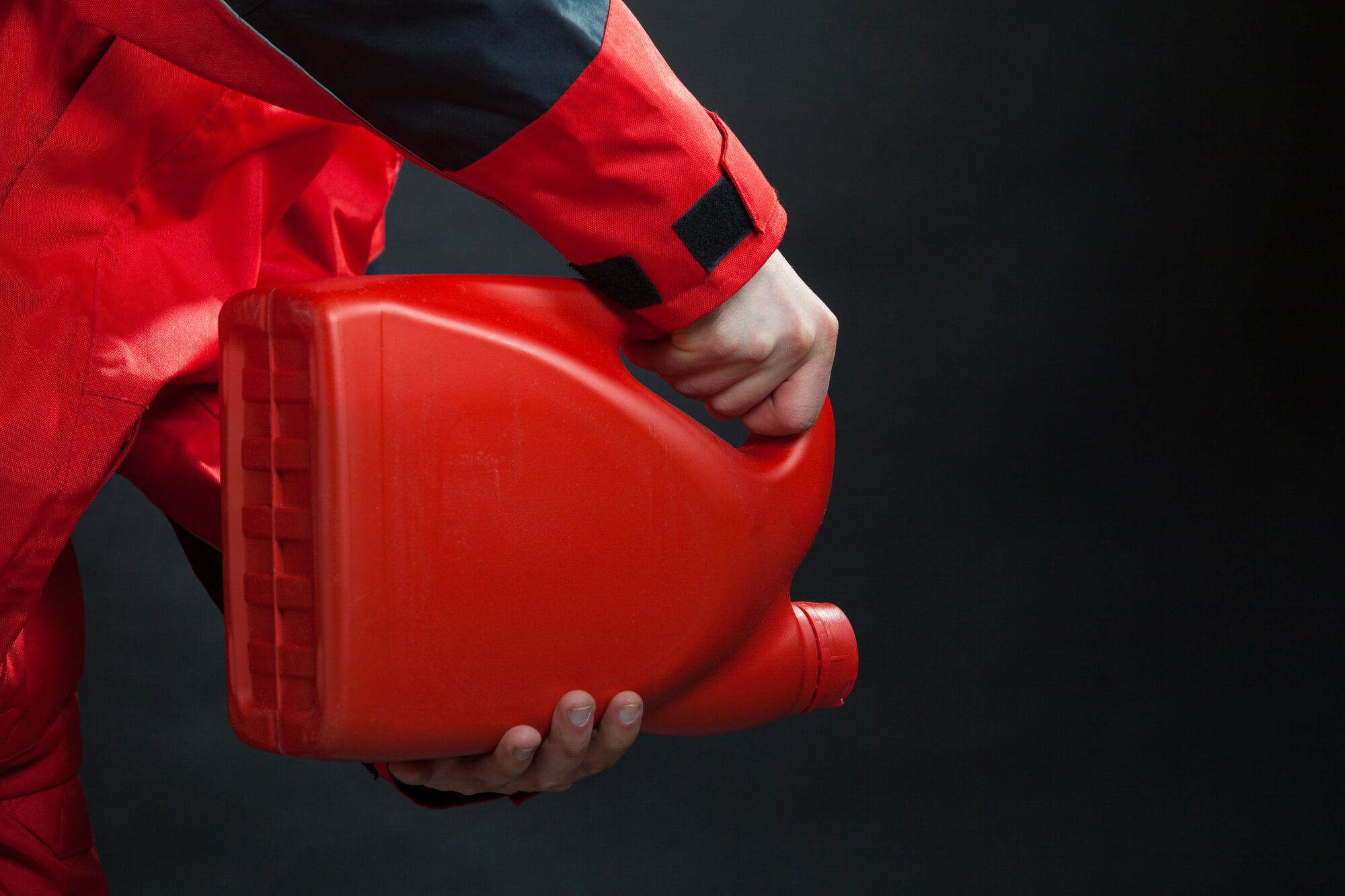

We may earn revenue from the products available on this page and participate in affiliate programs. Learn more ›
Like those pantry potatoes with alien-like tentacles crawling out of their eyelets, gasoline only lasts so long. Leave it untouched in a vehicle, a lawnmower, or a storage tank for an extended period of time, and it will start to degrade into a dark and nasty unusable liquid.
Running old gas through an engine can damage internal components, or worse, ruin it permanently. It’s best to always dispose of the fuel and replace it with your local gas station’s finest. Gas requires specific disposal methods, however, and absolutely cannot be poured into a yard, into the street, or down any drains—won’t someone please think of the fish!
Confused as to where you should take it? Don’t be. The experienced Guides & Gear informational team will explain exactly how to remove old gas from an automobile, what tools you’ll need, and how to get rid of it. Let’s tango.
[Note: This article was originally published on Aug. 26, 2020, but was updated with new formatting and new information on 05/12/2021.]

Gas Disposal Basics
Estimated Time Needed: One hour
Skill Level: Beginner
Vehicle System: Fuel
Safety
Working with volatile and flammable gasoline can be dangerous and messy, so here’s exactly what you’ll need to ensure you don’t ingest automotive lifeblood, burn down the block, or incinerate your jeans and eyebrows.
- Safety glasses
- Gloves (optional)
- Mechanic coveralls (optional)

Everything You’ll Need To Dispose of Old Gas
We’re not psychic, nor are we snooping through your toolbox or garage, so here’s exactly what you’ll need to get the job done.
Tool List
- Siphon pump
- Authority-approved disposable gas can, either plastic or metal
- Rags, towels, or paper towels for cleanup
Organizing your tools and gear so everything is easily reachable will save precious minutes waiting for your handy-dandy child or four-legged helper to bring you the sandpaper or blowtorch. (You don’t need a blowtorch for this job. Please don’t have your kid hand you a blowtorch—Ed.)
You’ll also need a flat workspace, such as a garage floor, driveway, or street parking that’s also well-ventilated. Check your local laws to make sure you’re not violating any codes when using the street because we aren’t getting your ride out of the clink.
How To Remove Old Gas from a Vehicle
Make sure the vehicle is in an out-of-the-way location and completely cooled down (hopefully, it hasn’t been run). Remove the gas cap, and let’s get into it!
- Place a certified gas disposal container on a level surface.
- Place the input tube of the siphon pump into the gas tank. Try to position it at the bottom of the tank.
- Place the output tube into the container.
- Pump the siphon until all of the gas has been removed.
- Remove the siphon and pump a few more times into a rag or paper towel to get any remaining gas out of the siphon.
- Close the caps on the tank and the container.

How To Dispose of Old Gas
Find a local recycling and/or toxic waste disposal facility, call for and/or read specific instructions, and drop it off at the designated area. Yes, it’s that simple, but always make sure you do so with a sealed container that is meant to hold gasoline for extended periods of time.
Gas Disposal Pro Tips
Here at The Drive, we’re the type of people who would buy gasoline-scented Yankee candles for our living rooms. Through countless experiences working on engines, we’ve learned what to do, and more importantly, what not to do. Here are a few tips we’ve learned along the way.
- Don’t try to MacGyver your way through this by sucking on the end of a tube. Gas is toxic, and a $10 siphon pump will eliminate the risk.
- If the siphon pump is new, let the tubes unfurl for a couple days. Curled tubes that roll up on their own might pull themselves out of the tank or container and spray gas.
- Place a clean towel just below the gas tank opening. This will catch any spilled gas and protect the paint from the hose potentially scratching the surface.
- Do not reuse the canister you use to transport bad or contaminated gas. It could contaminate the good gas.
- Always winterize engines that you know will not be used for a long period of time. Not only will it save gas, it will also prevent premature parts degradation and/or failure.
- When transporting the gasoline, put the container into a larger plastic container. This will prevent the can from tipping and/or spilling.

Gasoline Disposal FAQs
You have the questions, The Drive has the answers.
Q. How often do you need to dispose of old gas?
A. There is no set rule for when to replace gas, but if the fuel has been sitting for six months or longer, it’s best to eat the cost and get some fresh stuff (it’s also possible to recondition old gas, but only to a point). The best way to determine whether gas is “bad” is to inspect it.
New gas is clear or slightly yellow. If your gas is a darker yellow, brown-tinted, or black-tinted, it needs to be replaced. Other signs of bad gas include haziness, dark particles and other dirt, noticeable liquid separation, or a higher viscosity.
Q. How much does it cost to dispose of old gas?
A. The only expense is the cost of gas used to drive to the recycling center. Some private waste management companies, however, might charge a fee.
Q. Does Autozone take old gas?
A. Autozone, like most other mainstream auto parts stores, does not accept gas or coolant. It does, however, accept used oil.
Q. Can you dump old gas on the ground?
A. Absolutely not! If you are caught dumping gas into the ground, you will likely get fined.
Q. How do I remove gas smell from my hands?
A. Exxon Mobil says, “Try mixing the vanilla extract with water and rubbing it on your hands until the mixture reduces or removes the smell. You can also use rubbing alcohol or lemon juice. Once the gasoline smell is gone, wash your hands with soap and water.”
Let’s Talk: Comment Below To Talk With The Guides & Gear Editors!
We’re here to be expert guides in everything How To related. Use us, compliment us, yell at us. Comment below, and let’s talk! You can also shout at us on Twitter or Instagram, here are our profiles. Got a question? Got a pro tip? Send us a note: guidesandgear@thedrive.com.
